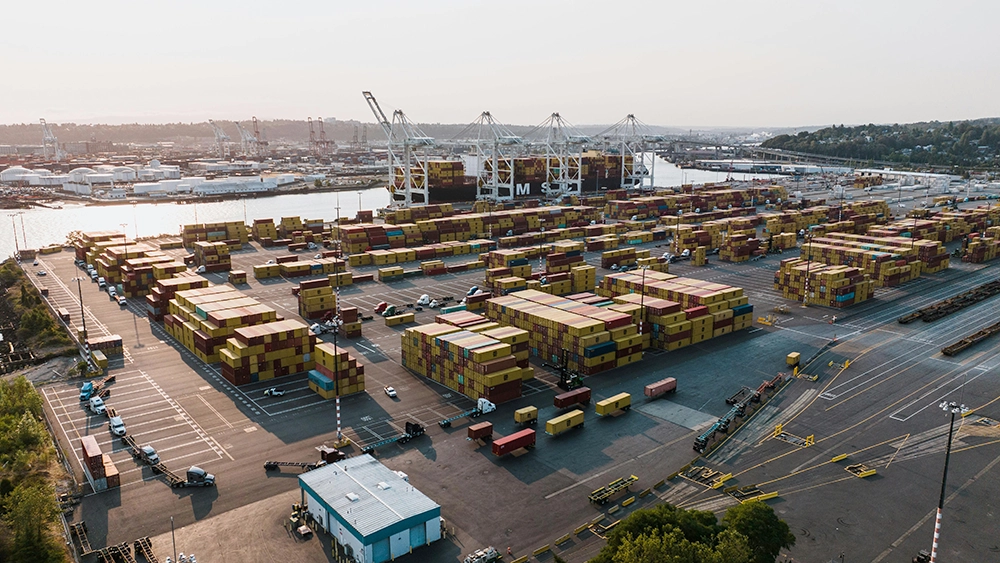Manufacturing and Logistics
Despite what TikTok 'hustle brokers' say, there are no easy wins in complex supply chains
Monday May 5, 2025

Social media has encouraged an influx of inexperienced individuals to enter the freight brokerage industry, raising concerns about fraud and accountability.
Shimmi Munson, of Strategic Transport, Inc., criticizes the portrayal of brokerage as an easy side hustle, advocating for stricter regulations.
Munson emphasizes the need for collective action among shippers, carriers, brokers, and the government to tackle freight fraud effectively.
There is so much more that goes into being a broker than just booking freight.

Shimmi Munson
Business Development/Broker, Strategic Transport Inc.
The rise of social media platforms has created new avenues for individuals to enter the freight brokerage industry, sometimes portraying it as an easy side hustle. However, this trend raises concerns about experience, accountability, and its connection to the pervasive issue of freight fraud.
Shimmi Munson, Business Development/Broker at 3PL provider Strategic Transport Inc., expresses frustration with the misleading online narrative, arguing it downplays the complexities of brokerage and potentially fuels larger industry problems like fraud. She advocates for greater professionalism and stricter regulations.
More than booking: "There is so much more that goes into being a broker than just booking freight," Munson states plainly. She observes newcomers online "creating these false ideas for people that it's so easy and that it's just so black and white and simple – but it's not." Munson adds, "The majority of these people believe that it's a side hustle, and easy to do, but they don't have the capabilities to really handle these shipments the way that they should."
Danger zones: Munson acknowledges that legitimate, successful brokers can operate remotely, or as agents under established structures. However, she feels this trend also introduces a different level and quality of players into the market, some operating more like scams, lacking true value and long-term viability. "These people are creating a lot of danger zones, really, for shippers. There are so many unknowns," she warns.
Fake brokers: While the "TikTok broker" phenomenon, often characterized by individuals proclaiming, "'this is so easy. Watch me do this,'" is a visible frustration, Munson clarifies the core issue is the broader, more pervasive problem of fraudulent brokers and carriers operating within the industry. Munson believes, "It's too easy to become a broker, in my opinion. There needs to be more regulation for brokers." She continues, "I don't think that you should just be able to be a broker just because you fill out some paperwork and have a license."
What's really important right now is for brokers and shippers to ask the right questions to the carriers, or for the shippers to ask the brokers.

Shimmi Munson
Business Development/Broker, Strategic Transport Inc.
How it happens: Fraud manifests in numerous ways, including sophisticated bill of lading scams, seal tampering, illicit freight swapping or selling in yards, carriers impersonating legitimate companies to steal pickups, and fake brokers acquiring freight only to illicitly resell it. Munson points to firsthand experience with the consequences, including shipments caught up in a large theft ring operating out of California.
After the fact: Spotting these fraudulent activities before damage occurs is incredibly difficult. Often, good brokers are left cleaning up the messes, as "a lot of the fraud that's happening, we're obviously finding out afterwards and then we have to deal with it," Munson explains. "What's really important right now is for brokers and shippers to ask the right questions to the carriers, or for the shippers to ask the brokers. Make sure that you are truly vetting, or understanding why something might be the way it is."
Tackling the complex issue of freight fraud requires diligence from all parties and potentially systemic changes. "There's not one part of this—the shippers, the carriers, the brokers, the government—that's going to solve the problem. It will be all of us having to take part in it and making some changes," Munson concludes, emphasizing the need for collective action and adaptation in a challenging landscape.